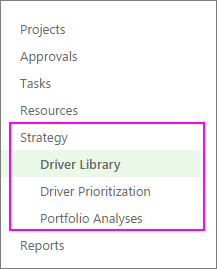### What is a Portfolio Loan? Understanding Its Benefits and Risks
#### What is a Portfolio Loan?A portfolio loan is a type of mortgage that is held by the lender rather than being sold on the secondary market. These loans……
#### What is a Portfolio Loan?
A portfolio loan is a type of mortgage that is held by the lender rather than being sold on the secondary market. These loans are typically used by borrowers who may not qualify for traditional financing due to unique financial situations, such as self-employment or non-traditional income sources. Because portfolio loans are kept on the lender's books, they have more flexibility in their underwriting standards and can tailor the loan terms to meet the specific needs of the borrower.
#### The Advantages of Portfolio Loans
One of the primary benefits of a portfolio loan is the flexibility it offers. Since lenders retain these loans, they are not bound by the same strict guidelines that govern conventional loans. This means that borrowers who may have lower credit scores or unconventional income streams can still secure financing. For instance, self-employed individuals often face challenges when applying for traditional loans due to fluctuating income levels. A portfolio loan can provide a solution by allowing lenders to consider the borrower's overall financial picture rather than just their credit score or income documentation.

Another advantage is the potential for customized loan terms. Lenders can work directly with borrowers to create a loan package that meets their specific needs, such as adjusting the interest rate, down payment requirements, or loan duration. This level of personalization can be particularly beneficial for investors looking to finance multiple properties or for those seeking unique loan structures.
#### The Risks of Portfolio Loans
While portfolio loans offer several advantages, they also come with certain risks that borrowers should be aware of. One significant concern is that these loans may come with higher interest rates compared to conventional loans. Since lenders are taking on more risk by offering financing to borrowers who may not qualify for traditional loans, they often charge higher rates to mitigate this risk.

Additionally, because portfolio loans are not subject to the same regulations as conventional loans, there may be less transparency in the lending process. Borrowers should conduct thorough research and ensure they understand the terms and conditions of the loan before proceeding. It is also advisable to work with a reputable lender who can provide clear information and guidance throughout the process.
#### Who Should Consider a Portfolio Loan?
Portfolio loans can be an excellent option for various types of borrowers. Self-employed individuals, real estate investors, and those with unique financial situations may find portfolio loans to be a viable solution for their financing needs. Additionally, borrowers who have experienced recent credit challenges or those looking to purchase properties that may not meet conventional lending criteria should consider exploring portfolio loan options.

#### Conclusion
In summary, understanding what a portfolio loan is can help borrowers make informed decisions about their financing options. While these loans offer flexibility and customization, they also come with certain risks, including potentially higher interest rates and less regulatory oversight. Borrowers should carefully evaluate their financial situation and consider working with a knowledgeable lender to determine if a portfolio loan is the right choice for them. By weighing the pros and cons, individuals can navigate the lending landscape more effectively and secure the financing they need to achieve their financial goals.